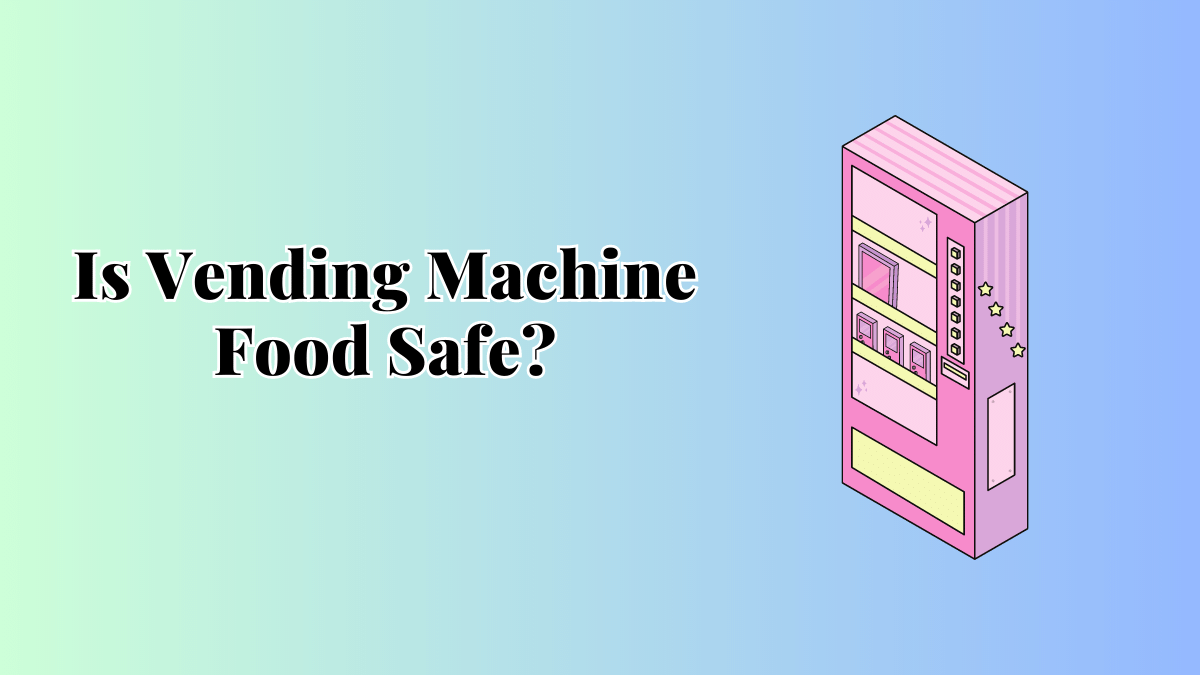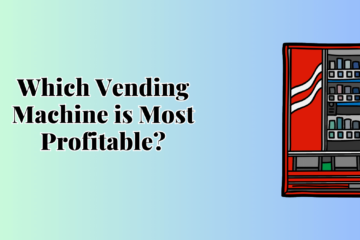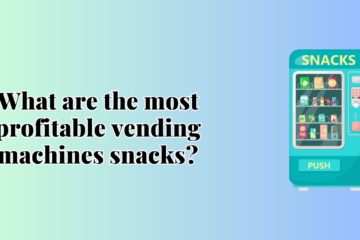Vending machines have become an integral part of our modern lifestyle, providing quick and convenient access to snacks and beverages in various settings. However, amidst concerns about food safety, many individuals wonder, “Is vending machine food safe?” In this article, we will address this question and explore the safety measures and potential risks associated with consuming food from vending machines. By shedding light on the subject and providing expert insights, we aim to help you make informed choices when using vending machines for your food and beverage needs.
The Rise of Vending Machines: A Convenient Solution
Vending machines have significantly grown in popularity due to their convenience and accessibility. These machines can be found in workplaces, schools, hospitals, shopping malls, and public spaces, offering an array of snacks, drinks, and even hot meals. The ease of access makes them a preferred option for those seeking a quick bite or a refreshing drink on the go.
Safety Measures in Vending Machine Food
Vending machine operators and manufacturers are well aware of the importance of food safety. To ensure the well-being of consumers and comply with regulations, they implement several safety measures. Some of the key safety measures include:
- Regular Inspections and Maintenance: Vending machine operators conduct regular inspections to check for any malfunctioning parts or potential contamination risks. Proper maintenance helps prevent food spoilage and ensures that the machines are in optimal working condition.
- Temperature Control: Perishable food items like sandwiches and salads are typically stored in temperature-controlled vending machines. This helps maintain the freshness of the products and reduces the risk of bacterial growth.
- Proper Hygiene Practices: Vending machine operators should adhere to strict hygiene practices when restocking the machines. Gloves should be worn, and surfaces should be sanitized to prevent cross-contamination.
- Product Rotation: To prevent the sale of expired products, vending machine operators should practice first-in, first-out (FIFO) product rotation. This ensures that older items are sold before newer ones.
- Labeling and Allergen Information: Many vending machines now display clear labels with ingredient lists and allergen information. This helps individuals with allergies or dietary restrictions make informed choices.
The Potential Risks of Vending Machine Food
While vending machines are designed with safety in mind, certain risks are associated with consuming food from them. It’s essential to be aware of these potential risks to make informed decisions:
- Contamination from External Factors: Vending machines placed in busy public areas may be exposed to dust, pollutants, and other external factors. These factors can potentially contaminate the food products inside the machine.
- Temperature Fluctuations: Not all vending machines have temperature control, especially those offering non-perishable snacks and beverages. Temperature fluctuations can impact the quality and safety of the products.
- Allergen Cross-Contamination: Despite proper labeling, there is always a risk of allergen cross-contamination in vending machines that dispense various products. Individuals with severe allergies should exercise caution.
- Expired Products: Although vending machines should be stocked with fresh items, there is a possibility of expired products slipping through the cracks if proper inventory management is not maintained.
- Malfunctioning Machines: In rare cases, a vending machine malfunction could lead to incorrect dispensing or the inability to refund money, causing frustration to customers.
Best Practices for Consumers
As a consumer, you can take certain precautions to ensure your safety when using vending machines:
- Inspect the Machine: Before making a purchase, inspect the vending machine for cleanliness and signs of maintenance.
- Check Expiration Dates: Always check the expiration dates on food items before buying them.
- Wash Your Hands: If possible, wash your hands or use hand sanitizer before consuming any food or drinks.
- Know Your Allergens: If you have food allergies, familiarize yourself with the product labels and allergen information.
- Opt for Sealed Packages: Choose products that are securely sealed, reducing the risk of contamination.
- Report Issues: If you encounter any problems with a vending machine or suspect a safety issue, report it to the appropriate authorities or the vending machine operator.
FAQs about Vending Machine Food Safety
FAQ 1: Is it safe to eat food from vending machine regularly?
Absolutely! When vending machines are properly maintained and stocked with fresh products, they can be a safe option for grabbing a quick snack or drink.
FAQ 2: Are vending machine products regulated by health authorities?
In many countries, vending machine products fall under the purview of health authorities. Regulations vary, but they often include requirements for product labeling, temperature control, and hygiene practices.
FAQ 3: Can vending machine food cause food poisoning?
While the risk is minimal, improper handling or storage of food in vending machines can lead to food poisoning. However, such cases are relatively rare.
FAQ 4: How can I identify expired products in a vending machine?
Check the expiration dates on the product packaging before making a purchase. Additionally, observe the overall condition of the vending machine and avoid items that appear damaged or stale.
FAQ 5: Are there any benefits to vending machine food safety labels?
Yes, food safety labels on vending machine products help consumers make informed choices, especially if they have allergies or dietary restrictions.
FAQ 6: What should I do if a vending machine product tastes strange or off?
If you notice any unusual taste or appearance in a vending machine product, stop consuming it immediately and report the issue to the vending machine operator.
Conclusion
In conclusion, the vending machine food safe or not depends on various factors, including proper maintenance, temperature control, hygiene practices, and consumer awareness. While there are potential risks associated with vending machine food, following best practices and exercising caution can help mitigate these risks. Remember to inspect the vending machine, check expiration dates, and wash your hands before consuming any food or drinks. By making informed choices and staying vigilant, you can enjoy the convenience of vending machine snacks and beverages safely.



